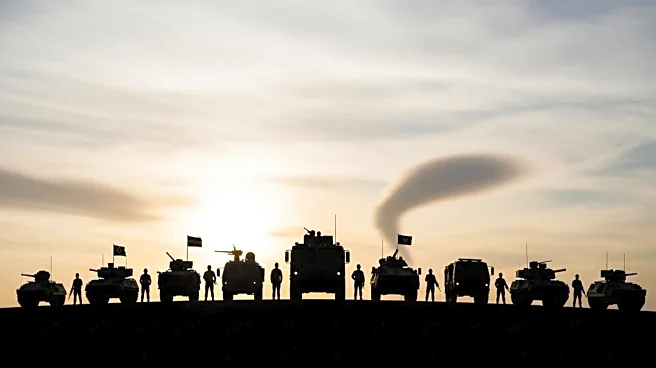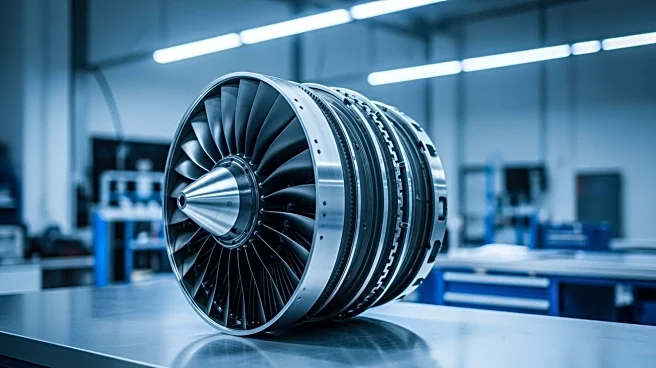What's Happening?
North Korean leader Kim Jong Un is set to attend a military parade in Beijing, marking the 80th anniversary of Japan's surrender in World War Two. The event will feature leaders from Russia, including President Vladimir Putin, and other nations, showcasing China's diplomatic influence. The parade will display China's latest military advancements, including aircraft, tanks, and anti-drone systems. This marks Kim's first multilateral international meeting, highlighting China's role in fostering regional alliances. The event is expected to be closely monitored by analysts and Western powers, given the geopolitical implications of Kim's participation.
Why It's Important?
Kim Jong Un's attendance at the parade signifies a strengthening of ties between North Korea and China, potentially impacting regional stability and diplomatic relations. China's ability to convene such a gathering underscores its growing influence in global politics, particularly in relation to North Korea and Russia. The parade serves as a platform for China to demonstrate its military capabilities and strategic alliances, which may affect international perceptions and policy decisions. The event also provides Kim an opportunity to bolster his international presence, potentially influencing North Korea's diplomatic stance.
What's Next?
The parade may lead to further diplomatic engagements between China, North Korea, and Russia, potentially affecting negotiations related to regional security and economic cooperation. Analysts will likely scrutinize the interactions between leaders, assessing implications for ongoing geopolitical tensions, such as the situation in Ukraine. The event precedes a possible visit by President Trump to Asia, which could involve discussions on tariffs and other bilateral issues. The outcomes of these diplomatic activities may shape future international relations and policy strategies.










